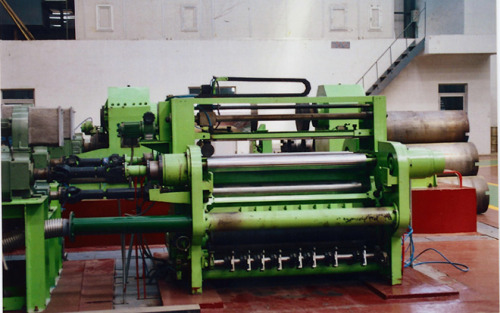Fourth quarter domestic manufacturing accelerated transformation
 The “quiet and cheap†that had made “Made in China†popular in overseas markets has now become the target of international trade protectionism boycotting “Made in China,†resulting in numerous domestic export companies in the predicament of a “trade warâ€. It is difficult to get away in a short period of time.
The “quiet and cheap†that had made “Made in China†popular in overseas markets has now become the target of international trade protectionism boycotting “Made in China,†resulting in numerous domestic export companies in the predicament of a “trade warâ€. It is difficult to get away in a short period of time. Recalling that in the third quarter of this year, the “double counter†investigations of China’s PV companies broke out in Europe, the United States, and India, making it difficult for domestic PV companies to parry for a while. The “two out†industry structure also caused the business losses they experienced to be even more severe than others. industry.
However, photovoltaic products are only a microcosm of Chinese companies’ protection of trade protection measures this year. The European Commission announced in August this year that it extended the anti-dumping duties imposed on Chinese exports of bicycles and bicycle parts to 2016; since mid-September, the European Union imposed a five-year punitive tariff on tiles imported from China, with a maximum rate of 69.7%. .
The increase in trade protection measures for China in this round has a lot to do with the sluggish global economic growth. The economic downturn in the major developed economies has caused a decline in domestic demand, which has led to an increase in the unemployment rate. In order to protect domestic enterprises and increase employment, trade protection will be implemented, and imports of goods from other countries will be raised.
In addition, in the first half of this year, China has suffered a total of 40 investigations initiated by 18 countries and regions, including anti-dumping, countervailing, and special insurance, which is an increase of 38% year-on-year. From the perspective of filing countries, Brazil, India and other developing countries account for 70% of the total number of cases filed against China. The surge in trade frictions between emerging countries and China has become an important feature of this round of trade warfare.
After Europe and the United States, the Anti-Dumping Agency of India will also conduct anti-dumping investigations on PV products exported from China. Indian solar manufacturers call for an anti-dumping tax of up to 200%. On October 15, Mexico filed a WTO dispute settlement mechanism on Chinese textile and clothing subsidy policies. The following consultation request alleges that China has subsidized textiles and clothing companies by reducing or exempting part of the income tax, VAT and local taxes.
Different from the developed countries, the purpose of the “double counter†investigation initiated by emerging economies to Chinese products is to emphasize the development of their own related industries and reduce the degree of foreign dependence, which also makes the scope of their “double opposition†wider. The attitude is also more determined. The Indian government has been trying to make India a solar product manufacturing center, but Indian solar companies have not benefited from government actions. However, India's indigenous solar manufacturing industry is not well-developed, and its domestic photovoltaic market relies heavily on imports.
The timing of the “Made in China†transformation is based on the “Research and Development Forecast Report of China's Trade Industry Market for 2011-2015†published by China Research & Development Corporation. From January to September this year, China’s total value of imports and exports was USD 284.47 billion, which was an increase compared to the same period of last year. 6.2%; of which exports grew by 7.4% and imports increased by 4.8%. This is still a certain gap from the 10% growth target set at the beginning of the year. Although a series of “steady growth†policies have been introduced this year, the foreign trade data for the month of September showed signs of stabilization and recovery. However, both the General Administration of Customs and the companies are cautious about the future trend of foreign trade.
Ultra high strength heat treated anchor steel bar is a high performance steel that is inductively heat treated from hot rolled steel bars. It is widely used in anchoring, supporting, reinforcement and other projects in coal mine roadways, highway slopes, tunnels, dams, urban foundation pits etc. Pre-stressed concrete works, especially in coal mines.
This product not only has higher strength grade than ordinary hot rolled products, but also effectively reduces rock mass deformation, controls the surrounding rock damage range and has excellent impact resistance, which can resist sudden impact pressure and beneficial to ensure the safety of mining production.
This product has been approved by the Anbiao National Mine Product Safety Mark Center.
Product implementation standards: MT 146.2-2011, Q/AYLTG 003-2011 GB/T 20065-2006.
Steel Bolt,Stainless Steel Bolts,Fully Threaded Stud Bolts,High Strength Steel Bolts
SHANDONG LE REN SPECIAL STEEL CO., LTD. , https://www.js-luggagecarts.com
